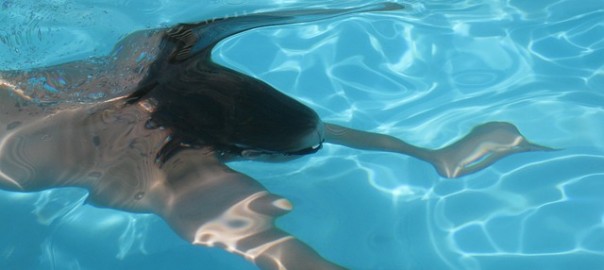S
Swimming is an excellent form of exercise for pensioners and undertaken on a regular basis, can have a lasting impact on your general health and well-being.
Swimming in the sea is the most beneficial, principally because of the extra effort needed to overcome the force of tide and waves, but also because of the added manoeuvrability required to avoid swallowing condoms, puffer fish, plastic bottles and anchors. To ensure your safety while swimming in the sea, you should always take a small child or dog with you, waving them frantically in the air to attract attention should you get into difficulties.
Swimming in rivers and lakes is becoming increasingly popular, and cardio-vascular activity can be greatly enhanced by getting your limbs trapped in underwater weed or shopping trolleys. There have been documented cases of pensioners being held under water by mallards (this is known as ‘ducking’ to habitual lake swimmers) but injuries from tadpoles, newts and minnows are thankfully rare.
Public pools are the most convenient venue for swimming, but the pleasure and effectiveness can be diminished by fat people floating and talking, slowly moving lane hoggers, hen parties throwing large brides onto your head and primary school classes trying to drown you in the mistaken belief that you’re their history teacher.
If you wear glasses or have a hearing aid, false teeth, walking stick or commode, these should all be discarded before swimming, but if you’re attached to an intravenous drip or a dialysis machine, these can be wheeled along the pool edge with prior permission. Flippers, hats and goggles should be used sparingly, and swimming aids such as arm bands, flotation suits and gondolas should only be used in competitive events.
Because cellulite hardens and expands when exposed to the air, most pensioners, especially men, should avoid wearing bikinis; similarly costumes which become transparent when wet, as this may frighten small children and lead to arrest and prosecution under anti-social sagging legislation.

